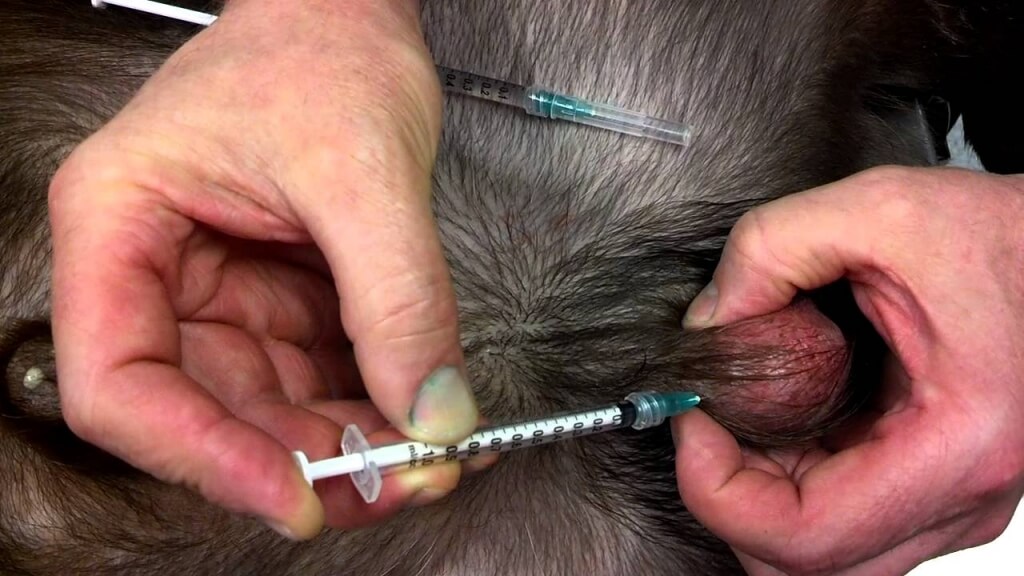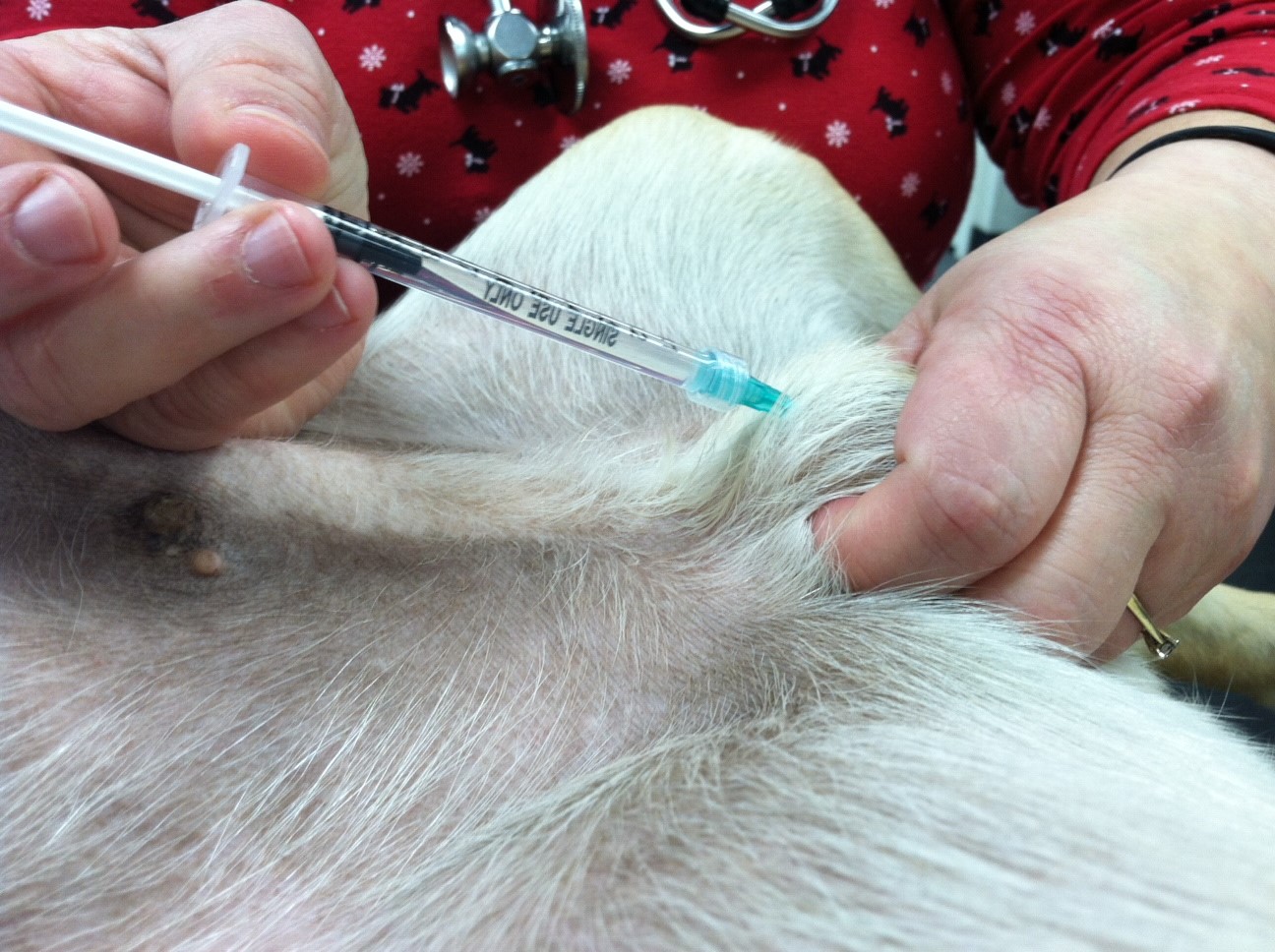Chemical castration of dogs
Having your dog neutered is not a health decision that should be taken lightly, especially when you are considering a permanent operation. Indeed, castration has multiple advantages for the health and safety of the dog, but it also brings its share of ethical questions that can chill owners concerned about the well-being of their companion.
To avoid confronting owners with this dilemma, it is possible to opt for chemical castration, a temporary and reversible solution. To help you make the best decision, here are more details on chemical castration, its advantages and disadvantages.
What is chemical castration for dogs?
Chemical castration is the opposite of surgical castration, which consists of the removal of the dog's testicles, a light but definitive operation. On the other hand, chemical castration, which is performed with the help of medicated substances, is temporary and generally lasts from 6 weeks to 12 months, depending on the method used.
It consists of injecting synthetic hormones into the dog's body, most often through an implant placed between the shoulder blades. Once the substances have been completely eliminated after the treatment, your dog is once again able to reproduce.
If the owner decides to do so, it is possible to carry out several successive castrations before prolonging the treatment. In addition to controlling your dog's reproductive ability, chemical castration also has the same side effects as surgical castration, namely a reduction in aggressiveness and a lower risk of prostate and testicular cancer.

Why chemically neuter your dog?
There are many reasons why a dog owner may want to chemically neuter his or her dog, but these are often medical or behavioral. Whole dogs can develop behavioral problems, which can manifest themselves in running away, urinary marking or exacerbated aggressiveness.
Chemical castration, as well as traditional castration, generally allows to put an end to these problematic attitudes if it is done early enough. You should not wait until your dog's behavioral problems become established before taking action, because once the bad habits have become entrenched in your dog's daily life, he may never get rid of them, castration or not!
It is also possible to proceed to a chemical castration for medical reasons, for example in order to protect your dog against the risks of developing prostate or testicular tumors. Finally, although it is less frequent than for bitches, one of the reasons for chemical castration may be to avoid unwanted reproduction.
Chemical castration methods for dogs
Only two methods are commonly used to castrate our four-legged friends. Both are aimed at the same specimens - which must have reached their sexual maturity - and can only be performed by a veterinarian.
The first method relies on the injection of desorelin, a substance that antagonizes GnRH, the hormone necessary for testosterone production. Desorelin is contained in an implant placed under the skin of your dog, on the back, and is continuously diffused in his body. Its effects are noticeable 4 to 6 weeks after the implant is placed, and last 6 to 12 months.
The second method consists of the injection of delmadinone acetate, a progestin that is similar to progesterone. Progesterone, which is naturally present in the dog's body, counteracts the effect of testosterone and, therefore, the production of spermatozoa. Progesterone is more temporary than the implant, as it is only effective for about 3 weeks.
In addition, it is a substance that can cause serious side effects and has its own set of contraindications, so it is more likely to be used for medical treatment than for reproductive or behavioral control.

How is chemical castration performed on dogs?
Chemical castration is a benign procedure, but it must be performed by a veterinarian. The veterinarian either injects a treatment directly into your dog (progestogen method), or proceeds with the insertion of a subcutaneous hormonal implant using a specific syringe (desorelin method).
This procedure is very similar to the installation of a microchip, with the difference that the implant is completely resorbable and will disappear in your dog's body once its mission is completed. Generally, there is no need to anesthetize your dog to carry out this procedure, unless he is particularly soft or impossible to handle safely.
Once the implant has been placed, it is necessary to wait a few weeks for it to reach a satisfactory level of effectiveness so that the effects of castration on your dog's behavior and fertility can be assessed.

